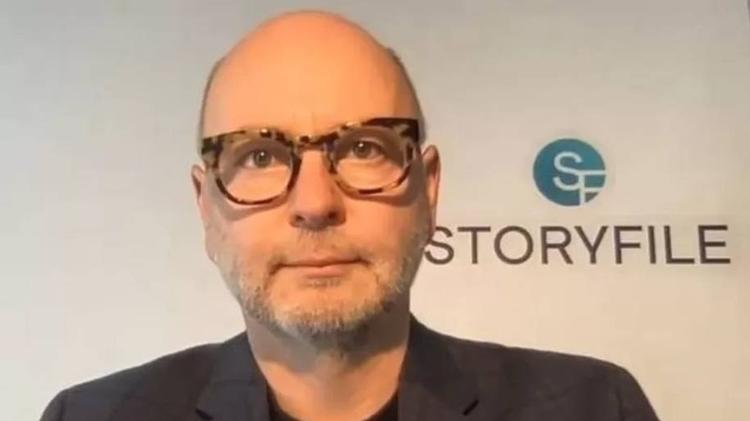Activist Marina Smith, who worked in Holocaust education, died in June at the age of 87. But a few days later, his family and friends were able to see his son answer questions about his life – when he woke up – thanks to the technology he had created.
Stephen Smith said his company’s video tool, StoryFile, allowed his mother “to be present somehow” during the ceremony.
He explains that the technology allows for a video call with an already dead person and “responds as if he were there.”
Smith says technology brings up the aspects of her mother’s life that are most important to her and the people who love her most. And the words used were actually his mother’s verses, not an AI-generated text.
But how does it work?
To shoot the video, the person must make a recording before they die and answer numerous questions about their life.
Then, after death, an AI system selects appropriate clips to play in response to questions from people watching the video, and the person appears to listen and respond in something the company calls a “talk video.”
Rollo Carpenter, who created the CleverBot chatbot and has no affiliation with Smith’s company, claims that the video chat system works differently without trying to create your own replies or using artificial intelligence to generate new replies.
“It just chooses from a set of pre-recorded playable sequences,” he says.
celebrity interaction
Marina Smith was one of the founders of the National Holocaust Center in Nottinghamshire, England, where she ran a Holocaust education program. In 2005, she received a knighthood from the British Crown for her work.
StoryFile’s founders came up with the idea for the chat video while trying to create interactive holograms of Holocaust survivors for the USC Shoah foundation.
The company sees a wide range of potential business applications for the technology, from customer service to sales.
The company has also encouraged some celebrities to document their careers using technology, including actor William Shatner, best known for his role as Captain Kirk in Star Trek. You can interact with the video on the company’s website.
‘My virtual version’
Looking to the future, Smith envisions a world where people are constantly documenting their lives, suggesting that users can “talk to their 18-year-old selves or introduce their children to their 16-year-old selves when they turn 50.”
The idea that in the future artificial intelligence could be used to create virtual versions of dead people has been circulating for some time. The topic was covered, for example, in an episode of the Black Mirror series.
However, Smith explains that his technology does not do this, and rejects the idea. “Everything about us is absolutely unique. There is no way you can create a version of me.”
Carpenter agrees, saying that using existing artificial intelligence technology to create a “computer-generated” person risks “putting words into the mouth of the deceased.”
If other people believe that the deceased said these words while he was alive, the outcome could be even worse.
The limits of chatbots – AI bots that mimic conversations – were demonstrated by BlenderBot 3, the chatbot of Meta, the company that controls Facebook. The show has been criticized for making offensive statements and saying mean things about the company’s co-founder, Mark Zuckerberg.
Meta said the robot is a prototype built for research purposes. The company also noted that users have been warned that the program may say things it ideally shouldn’t.
– This text was published at https://www.bbc.com/portuguese/geral-62579891.
source: Noticias
[author_name]
